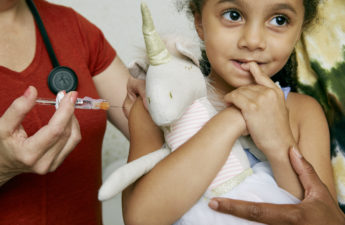BPC-157 is a kind of chemical called a peptide, and the U.S. Food and Drug Administration treats it and some other peptides as unapproved drugs — going so far in 2023 as to explicitly prohibit compounding pharmacies from supplying BPC-157 to patients. Health and Human Services Secretary Robert F. Kennedy Jr. has more recently signaled a desire to loosen restrictions on experimental medical treatments, including unapproved peptides like BPC-157.
ChatGPT Health promises to personalise health information. It comes with many risks
ChatGPT Health promises to generate more personalised answers, by allowing users to link medical records and wellness apps, upload diagnostic imaging and interpret test results. But how does it really work? And is it safe?
Taking acetaminophen in pregnancy doesn’t increase your baby’s risk of autism or ADHD – new review
The research confirms that taking paracetamol – also known as acetaminophen, or by brand names such as Panadol and Tylenol – does not increase a baby’s risk of autism, ADHD or intellectual disability when used in pregnancy.
Viral outbreaks are always on the horizon – here are the viruses an infectious disease expert is watching in 2026
Old viruses are constantly evolving. A warming and increasingly populated planet puts humans in contact with more and different viruses. And increased mobility means that viruses can rapidly travel across the globe along with their human hosts.
Exercise snacks: the best bursts of activity to incorporate into your day
In a 2019 study, sedentary young adults were asked to vigorously climb a three-flight stairwell three times per day – with one to four hours of recovery between bouts. Each session also included a brief warm-up of jumping jacks, squats and lunges. After six weeks, the stair climbers showed significant improvements in cardiorespiratory fitness compared to a control group – a key marker linked to longevity and reduced cardiovascular disease risk.
New variant of the flu virus is driving surge of cases across the US and Canada
In early January, New York state recorded the highest number of flu cases in a single week on record. Several other states, such as Colorado, are also experiencing record flu levels, and 44 out of 55 states and other jurisdictions are reporting high or very high flu activity, according to the CDC.
How low can you go (and still build muscle)? Why strength training matters at any age
Tom Janssen, McMaster University and Matthew Lees, McMaster University Getting out of a chair shouldn’t be a struggle. Yet for many older adults, simple everyday movements like this become increasingly difficult as our muscles break down and weaken with age,…
Prioritising protein? What the new US dietary guidelines get right – and wrong – according to 2 nutrition experts
Under the slogan “eat real food”, the new guidelines recommend people “prioritise protein at every meal”, eat full-fat dairy and plenty of whole grains, and limit ultra-processed foods. A new food pyramid has also been redesigned and flipped on its head. But are the guidelines based in good science? And how much has actually changed?
States go their own way as RFK Jr. shifts federal vaccine policy
Many states are setting up their own advisory committees or task forces to make vaccine recommendations. In many states, the guidelines are tied to school vaccination requirements, insurance coverage of vaccinations and rules allowing pharmacists to give vaccinations.
RFK Jr. guts the US childhood vaccine schedule despite its decades-long safety record
Major medical organizations, including the American Academy of Pediatrics and the American College of Obstetricians and Gynecologists, have said that they will continue recommending the full complement of childhood vaccines. Several states, including California, New York, Illinois and Washington state, will follow established guidelines rather than the new federal recommendations, creating a patchwork where children’s protection depends on where they live.
West Coast Health Departments Reject CDC’s New Vaccine Guidance
The CDC’s decision did not follow established procedure for vaccine policy recommendations and threatens an increase in vaccine-preventable diseases in children nationwide, the West Coast Health Alliance argues.
What is ‘oatzempic’? Does it actually work for weight loss?
If you’ve spent any time on TikTok or Instagram lately, you may have seen people blending oats with water or juice and calling it “oatzempic.” But is oatzempic supported by science? The short answer is no. Let’s unpack why.
No gym or regular routine? Here’s how to stay fit over the holiday break
The festive season can throw our exercise routines out the window.
You might be staying somewhere different, with no access to a gym.
Maybe your yoga studio is closed or social sport is on a break.
Or you might just be too flat out with social events to find the time.
For some people, a break from pushing their bodies will be exactly what they need.
But others will want to keep up the fitness and strength they’ve been working on throughout the year – and some will crave the mental release.
Severe storms and cold, windy weather threaten health across Washington
Washington State Department of Health offers health resources, safety tips, and ways to help Washington communities
The United States CDC has abandoned science in its new advice about vaccines and autism
The CDC once stood as a global benchmark of scientific integrity. Sadly, it now risks becoming a megaphone for misinformation and a tool for those whose goal is to undermine science.














